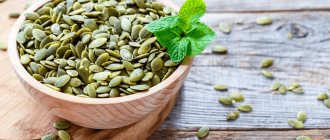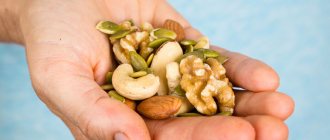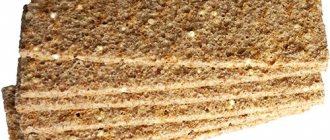Watermelon for weight loss
Despite the high glycemic index (75-80 units), its calorie content per 100 g of pulp is only 27 kcal, which allows you to include the berry in your diet .
Eating watermelon before bed is very useful and in some cases recommended by doctors. This is due to the fact that urine actively concentrates in the body at night, and watermelon eaten in the evening stimulates the removal of stones from the kidneys.
Eating watermelon at night has only one negative side : the processed liquid, asking to come out, will cause disturbed sleep.
Moreover, a person can experience such urges several times a night.
Is it possible to eat watermelon at night while losing weight?
Often in the evening, the body begins to require junk food. Watermelon will help satisfy such desires. Even a small piece of watermelon will quickly saturate the body, and the sweet pulp will discourage the desire to eat smoked or fried.
Also, watermelon easily removes harmful deposits that have accumulated, so such a dinner helps many people lose weight.
So, eating watermelon at night is a good way to lose weight, because this is exactly what nutrition experts say. However, it is recommended to limit yourself to only a couple of slices of berries 1-1.5 hours before bedtime.
Chemical composition
100 g of watermelon pulp contains:
- 0.7 g protein;
- 5.8 g carbohydrates;
- 0.1 g fat;
- 93 g water;
- 0.4 g dietary fiber.
In addition, the berry contains:
- vitamins A, PP, C and group B;
- organic acids;
- folic acid;
- iron;
- cobalt;
- iodine;
- manganese;
- copper;
- fluorine;
- zinc;
- calcium;
- magnesium;
- potassium;
- phosphorus;
- sodium;
- lycopene
Thanks to the variety of mineral and vitamin compounds, watermelon brings many benefits to the human body. However, it is important to be aware of the downside, which can cause harm.
What are the benefits of watermelon?
Watermelon is a melon crop of the Cucurbitaceae family; its fruit is a false berry. It has a very high water content of about 90%. 0.7% of the edible part comes from proteins, 8.7% from carbohydrates (mono- and disaccharides), 0.5% from dietary fiber, fiber and pectins.
Despite the beneficial properties of watermelon, you can’t count on a large supply of vitamins with it, but it contains a lot of magnesium, potassium and iron. Magnesium is necessary for the development of the nervous system, potassium helps maintain water-salt balance, and iron promotes hematopoiesis. However, if you eat 1 kilogram of watermelons per day, the daily requirement of vitamin C will be provided. Calorie content 38 kcal per 100 g of pulp.
To saturate the watermelon diet with essential vitamins, minerals and other nutrients, food diversity is introduced into the diet - the more varied the longer the diet is supposed to be.
Positive and negative qualities
The benefits of watermelon are as follows:
- strengthening the immune system;
- saturating the body with macro- and micronutrients;
- normalization of metabolic processes;
- beneficial effects on nails, hair and skin;
- improving the functioning of the genitourinary and digestive systems;
- ridding the body of waste and toxins;
- preventing anemia;
- cleansing the liver, kidneys, bile ducts and urinary canals;
- stimulates blood cell regeneration;
- reduces cholesterol in the blood.
Possible harm to the berries:
- predisposition of the structure to intense absorption of nitrates, an increased concentration of which poses a serious health hazard;
- unsuitable for kidney pathology, due to the ability to cause a strong diuretic effect and stimulate the active leaching of stones and sand, which can significantly complicate the situation;
- high sugar content, which is why excessive consumption of watermelon is unacceptable for people with diabetes.
In case of individual intolerance, the berry contributes to the occurrence of an allergic reaction.
Specifics of the watermelon diet
Watermelon is characterized by its ability to accelerate the process of weight loss, which is due to several factors:
- diuretic effect, due to which excess fluid is removed from the body, which leads to a loss of approximately 2 kg of weight;
- maximum filling of the stomach due to which the feeling of fullness does not go away for several hours.
This diet is not recommended in the last stage of pregnancy, as well as in the presence of a number of diseases.:
- diabetes mellitus with simultaneous failure of the kidneys;
- irritable bowel syndrome;
- pathology of one or more organs of the urinary system, formation of stones;
- prostate adenoma.
Important! Before you start following a watermelon diet, you need to do an analysis and compare the benefits and harms, otherwise there is a risk of harm to your health.
Advantages and disadvantages
The advantages of this diet are as follows:
- easy tolerability;
- effective cleansing of the body by getting rid of excess fluid and toxins;
- regulation of metabolic processes;
- lack of hunger;
- availability of berries in season and optimal cost;
- the opportunity to get excellent results in a short period of time.
The disadvantages of the diet include:
- the minimum content in watermelon of protein, fat, protein, etc., necessary for the full functioning of the body;
- increased load on the urinary system, leaching of useful substances such as sodium and potassium from the body.
It should be remembered that in the first days of the diet, only liquid leaves the body, so in case of failure, water and weight will immediately return back.
Watermelon for weight loss on a diet: composition, calorie content, BJU
Knowing the composition and calorie content of watermelon, you will understand whether watermelon is suitable for weight loss on a diet. Ripe fruits contain many mono- and disaccharides. These are carbohydrates that, when dissolved in water, enter the blood very quickly and increase blood glucose, which means they are contraindicated for diabetics. Watermelons are high in fructose, which is a natural source of sweetness without causing a spike in blood sugar. To a lesser extent, watermelon contains glucose and sucrose. These are all simple carbohydrates that do not contribute to weight loss and have a high glycemic index. Watermelon has a GI of 72, i.e. Watermelon is a food with a high glycemic index; it disrupts metabolic processes and increases hunger.
At the same time, simple carbohydrates can also be beneficial and harmful. Ask yourself: is this product natural or artificial? Natural carbohydrates are less harmful and are acceptable when losing weight on a diet in small quantities. In addition, watermelon contains a large amount of water, per 100 grams of berries - 92.6 grams of water. For this reason, the GI of watermelon has virtually no effect on blood glucose levels.
Harmful sugar in watermelon appears only after long-term storage; fresh berries contain mainly fructose and glucose. Therefore, green or overripe watermelon is contraindicated; it is better to buy only recently picked berries.
The calorie content of watermelons is only 27 kcal. Watermelon is a carbohydrate, per 100 g – 5.8 g of carbohydrates, 0.7 g of proteins and 0.1 g of fat. The berry contains a large amount of vitamins and other useful elements - vitamin A, vitamin B9, vitamin C, a large amount of potassium, chlorine, sodium, calcium, aluminum, boron, copper, rubidium, etc.
The fiber contained in watermelon stimulates intestinal function, thereby improving digestion and metabolism. The pulp absorbs and removes water well; when absorbed, it creates an increased volume in the stomach, thereby creating an artificial feeling of fullness. Due to the high water content in watermelon, it has a diuretic, choleretic and laxative effect.
Diet options
Proper consumption of watermelon will allow you to lose 2-3 kg gained as a result of repeated overeating. According to nutritionists, the safest for health will be a fasting day lasting 24 hours. During this period, you need to eat approximately 2 kg of pulp in 4-5 approaches. At intervals you are allowed to drink 400 ml of green tea.
Important! For people whose excess weight exceeds 10 kg, it is recommended to follow a special diet for several days to obtain tangible results.
3 day program
Basic Rules:
- divide 1.5 kg of pulp into 5 servings and consume throughout the day;
- It is acceptable to include a small amount of black bread in the diet, as well as plain or still mineral water;
- Drinking coffee and tea is prohibited.
Thus, in 3 days a person gets rid of 2-3 kg. Repeating the diet is possible after a week, but you should not abuse this method of losing weight.
5 day program
There are 2 diet options for 5 days. The first assumes the following scheme:
- breakfast – 300 g of berry pulp, an hour later – 350 ml of green tea without sweeteners and yogurt (low-fat);
- lunch – 350 g of watermelon, an hour later lean soup and steamed fish or chicken (turkey) fillet without salt;
- dinner - 300 g of watermelon pulp, an hour later - vegetable salad (without potatoes).
In the second variation, the following products are allowed for breakfast and lunch:
- vegetable salad, you can use yogurt or freshly squeezed lemon juice as a dressing;
- 2 pieces of cheese;
- porridge cooked in water (without sugar);
- some lean meat or fish.
Dinner should consist of 1.5 kg of watermelon. With this diet option, you need to drink at least 1.5 liters of water daily: mineral (without gases) or regular water.
Efficiency level
With strict adherence to the diet and nutritionist's recommendations, you can lose 3-7 kg in 7 days. The final result is determined by a number of factors:
- characteristics of a particular organism;
- initial weight;
- watermelon diet option.
Physical education plays a significant role in this process. Squats, push-ups, running and other exercises stimulate intensive breakdown of fatty tissue located under the skin.
Important! Physical activity prevents sagging skin that occurs during rapid weight loss.
Watermelon diets for weight loss
Whether watermelon helps you lose weight or not, whether you lose weight or gain weight from eating it - everything will be determined by the calorie content of your diet. To lose weight, it is not enough to eat watermelon. Any diet will promote weight loss only if energy expenditure exceeds its intake.
It is hardly advisable to eat exclusively these melons for a week or two, but this product can become the basis of various diets, where daily, along with other products, you need to eat from 1 to 2 kg of watermelon pulp.
Watermelon diet with bread
Thanks to the availability of bread, such a diet can be planned for a week. To 2 kg of watermelon you should add 150 g of dried rye bread. The entire daily amount of food should be divided into 5 meals. In a week of such a diet, you can lose 1 kg, even taking into account a small “rollback” in weight.
Advice from nutritionist Irina Shilina Healthy eating is incompatible with strict dietary restrictions, malnutrition and prolonged fasting. Today there is no need to strive for abnormal thinness by depriving yourself of food! Check out the latest weight loss techniques for 2021. Find out the secret ->
Combination diet
The diet is more balanced than the previous one and is designed for 2 weeks. The diet menu is as follows:
- breakfast: porridge with water, egg, cottage cheese or cheese;
- lunch: a portion of beef, fish or poultry (chicken, turkey), vegetable salad with herbs;
- dinner: 1 kg of watermelon pulp.
Balanced diet
A balanced diet can be followed indefinitely, throughout the entire period of weight loss. The calorie content of the diet should be reduced by 400–500 kcal (for women and men, respectively). It should include a sufficient amount of animal proteins, vegetable fats and complex carbohydrates.
You should avoid simple sugars, since a sufficient amount of them is contained in watermelon pulp, which should be included in the menu of each of the three meals in the amount of 300 g. Between main meals, you should make snacks: drink a glass of smoothie from the fruit itself or its juice. However, if you don’t have time to make a smoothie or juice, eat a slice of watermelon.
Contraindications for use
The benefits and harms of watermelon are incomparable. The benefits undoubtedly prevail, but if you have the following contraindications, you should not use watermelon for weight loss.
- Individual intolerance with allergic manifestations.
- Last trimester of pregnancy.
- Breast-feeding.
- BPH.
- Diseases of the pancreas.
- Diseases of the gastrointestinal tract.
- Diabetes.
Sometimes they ask whether it is possible to eat watermelon at night, whether it will be useful. You can - up to 1 kg for dinner, and provided that you do not eat anything else, and dinner is 4 hours before bedtime.
Rules for quitting the diet
After obtaining the desired result from the watermelon diet, you must adhere to a certain diet for another 7-10 days. To do this, it is best to use the following menu:
For breakfast:
- porridge: rice porridge with water, buckwheat or oatmeal (alternating them is acceptable);
- a piece of cheese, a boiled egg (hard-boiled), 100 low-fat cottage cheese.
For lunch:
- salad of vegetables and chopped herbs, seasoned with lemon juice or olive oil;
- steamed lean meat or fish.
Dinner should consist of only 1.5 kg of watermelon.
Important! After leaving the diet, it is necessary to limit the consumption of unhealthy foods, carbohydrates and sugar, which, if possible, is recommended to be replaced with natural honey.











